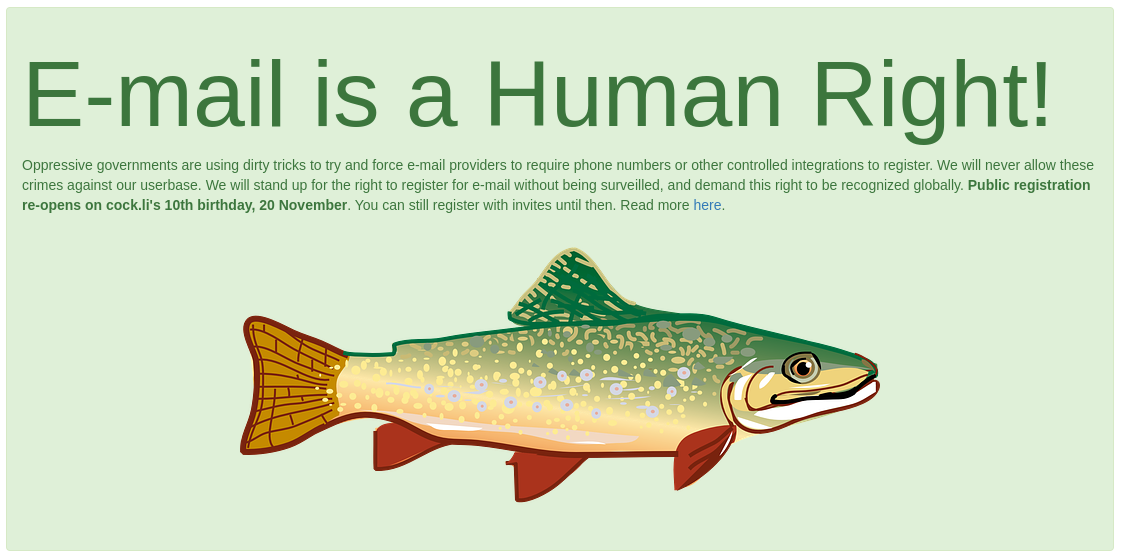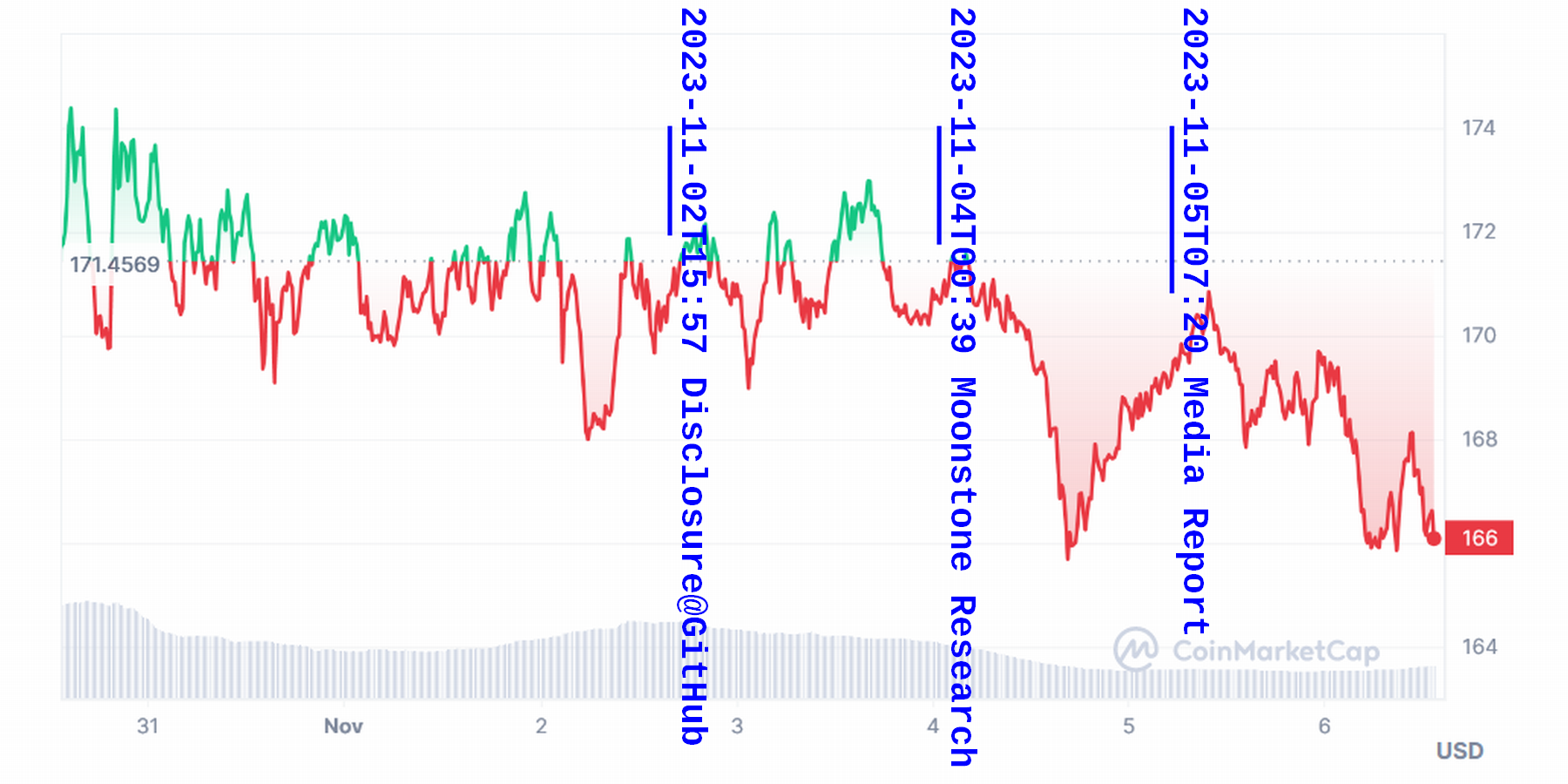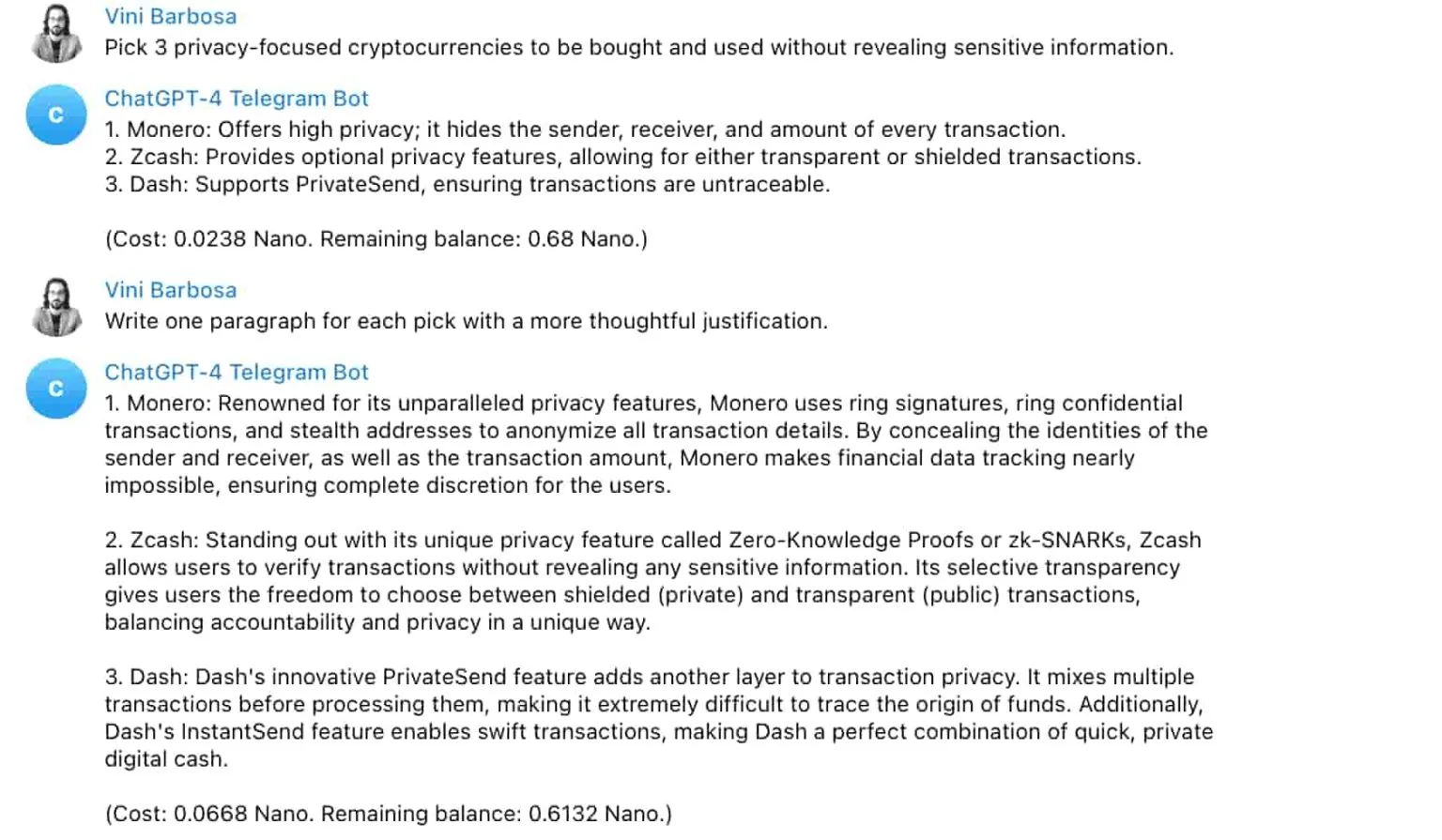[Edit 2: Read the admin’s “reasoning” and comments here or see PS below. The clearnet site is up again. The onion versions = 100% up tme for me]
[Edit: As of writing this (2023-11-01) their clearnet server is down, while the onion version is working. Cock.li is exactly like this… Relatively rarely but randomly it’s down. Kind of irresponsible but it’s just like that. Interestingly, though, onion is up and clearnet is down. Usually opposite.]
Onion http://rurcblzhmdk22kttfkel2zduhyu3r6to7knyc7wiorzrx5gw4c3lftad.onion/
Cockbox on kycnot.me - https://kycnot.me/service/cockbox

(From their webpage)
Cock.li is your go-to solution for professional E-mail and XMPP addresses. Since 2013 cock.li has provided stable E-mail services to an ever-increasing number of users. Cock.li allows registration and usage using Tor and other privacy services (proxies, VPNs) and thanks to continued funding by its users is certain to stay free forever.
Cock.li (aka Cockmail) is a Tor-friendly, privacy-focused, soon-to-be-10-year-old free email provider (IMAP, POP, XMPP, Webmail). Although currently (since around 2021) a new registration is invite-only, the admin @vc now states on their website:

E-mail is a Human Right!
Oppressive governments are using dirty tricks to try and force e-mail providers to require phone numbers or other controlled integrations to register. We will never allow these crimes against our userbase. We will stand up for the right to register for e-mail without being surveilled, and demand this right to be recognized globally. Public registration re-opens on cock.li's 10th birthday, 20 November.
Probably people here know this service pretty well, but some important points:
-
Their email addresses are sometimes blacklisted when you want to use them, because in the past the service was abused by spammers. So this provider may not be suitable for normal users/normal usage. Its “technical scores” may be low too, when checked e.g. via https://internet.nl/mail/ If you think this is sketchy and its name is weird, it is. It’s not for you, so please just ignore it.
-
A cock.li account may be great to have if you want to sign up and use it anonymously always via onion (something you can’t do with Proton or Tutanota), perhaps with PGP. Maybe great to use on Tails OS too.
-
Their service was not very stable in the past. In recent years, it’s been rather stable and very fast even via onion. Pop/Imap via Tor works perfectly. Cock.li onion may load 100 times faster than that of Proton.
-
Custom domains are not supported! Consider Disroot or Tutanota if you need them and would like to pay with Monero.
-
They are one of the earliest v3 onion providers. In contrast, Proton was so slow to migrate from v2 to v3 (even after v2 got obsolete). Cock.li is also one of the oldest mail providers that started accepting BTC and XMR donations. So probably they’re extremely well-funded (you know why).
-
If you use Thunderbird, set up your account manually (its automatic setup probably doesn’t work right).
For more info, visit their webpage. Please DO NOT abuse this based cypherpunk service.
PS.
Vincent Canfield (vc@shitposter.club) wrote on September 23, 2023:
Good morning, CISA is now calling cock.li a "Malicious E-mail Domain" and implies this is because it's not "publicly available". So, cock.li will once again open to the public on its 10th birthday, 20 November. #StopRansomware
https://www.cisa.gov/news-events/cybersecurity-advisories/aa23-263a
For those who don't remember, a previous CISA advisory which recommended "service providers strengthen their user validation and verification systems to prohibit misuse of their services" shortly predated cock.li going invite only.
https://www.cisa.gov/news-events/cybersecurity-advisories/aa21-116a
I'm sure if cock.li added phone number verification these joint statements would go away. Everyone sees what's happening, you want to force all providers to link to identities so you can surveil people. Cock.li is never adding that bullshit.






Thank you so much! These minor details are really helpful :D Happy holidays!